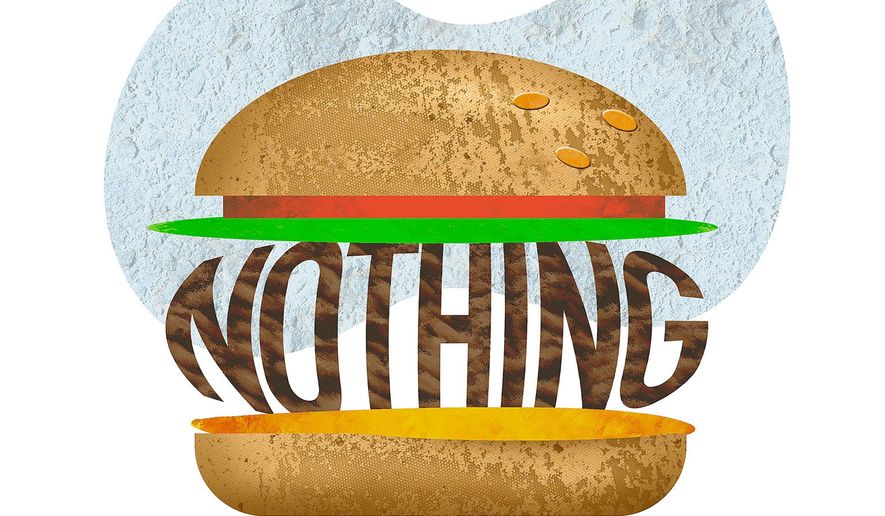OPINION:
The latest nothingburger ablaze on the media grill is that Donald Trump Jr. may have committed treason when he met with a woman he believed to be an agent of the Russian government who claimed to possess information that Hillary Clinton had colluded with that country.
Aside from the obvious implication that it might well be Mrs. Clinton who was acting adversely to the interests of the United States, and not Donald, Jr. (and just such a charge was levied by Peter Schweizer in his book “Clinton Cash: The Untold Story of How and Why Foreign Governments and Businesses Helped Make Bill and Hillary Rich” (2015)), those charging Donald, Jr. with treason betray an astonishing lack of understanding of the term.
“Treason” is defined in the United States Constitution as two things, and two things only. These are (1) levying war against the United States and (2) giving aid and comfort to the country’s enemies. No one suggests that Donald Jr. was making war against us, so presumably it is the “giving aid and comfort to the country’s enemies” that is involved here.
It is, of course, a nice question whether Russia is or was an enemy of the United States, and that country became, after all, one of our staunchest allies in World War II. True it is that following World War II, we fought a “cold war” with the Soviet Union, as that behemoth (which no longer exists) sought to impose communism on the whole world.
Perhaps Russia’s leader, Vladimir Putin, would still like to reduce the influence of the United States around the globe, and magnify Russia’s, but it has never made much sense to suggest that preferring Donald Trump to Hillary Clinton was the means to do that.
Since President Obama and Hillary Clinton were involved in a “reset” of relations with Russia designed to reduce international tensions, it seems more likely that Mr. Putin would have preferred eight more years of the Obama administration (wholly apart from the favorable terms on the Uranium sale to Russian interests which Mr. Schweizer describes) which is what Mr. Putin would have gotten with the election of Mrs. Clinton. He should have been rooting for her, not for Donald Trump.
Perhaps that should have made Mr. Trump, Jr. hesitate before meeting anyone who purported to be connected to the Russian government, but all of that misses the larger point about the silliness of invoking treason against the son of the president. Perspective is always cast on the present by looking to the past and, in particular by trying to understand the concerns of our framers.
As it turns out, those who put together the Constitution were deeply concerned with the abusive prosecution of treason by the British government. It was their understanding that “constructive treason” was the scourge of British subjects. Thus, there was a notion called “compassing the death of the King” that was understood to be the capital crime of treason. Accordingly, if one ever uttered anything that could be construed as a threat to the sovereign, one could be swiftly and finally terminated with extreme prejudice.
This happened, for example, in the time of the absolute monarchy of the Tudors, when an innkeeper of a pub known as the “Sign of the Crown,” told his son that one day he would be heir to the Crown, and also to a yeoman whose favorite deer had been killed by the king in a hunt, when the yeoman wished that his stag’s horns were “in the King’s belly.” It was to avoid abuses like those which resulted in the constitutional restrictions, which also demanded proof by two witnesses of the overt acts which constituted treason.
Donald Jr.’s motives were, obviously, to help the campaign of his father and to expose wrongdoing on the part of Mrs. Clinton, if it existed. There is not the slightest suggestion that he was an enemy of his country, or a friend to its enemies. To suggest otherwise is to engage in the licentiousness of the press that the framers also believed was one of the best ways to ruin a republic.
• Stephen B. Presser is the Raoul Berger Professor of Law Emeritus at Northwestern’s Pritzker School of Law and the author of “Law Professors: Three Centuries of Shaping American Law” (West Academic Publishing, 2016).




Please read our comment policy before commenting.